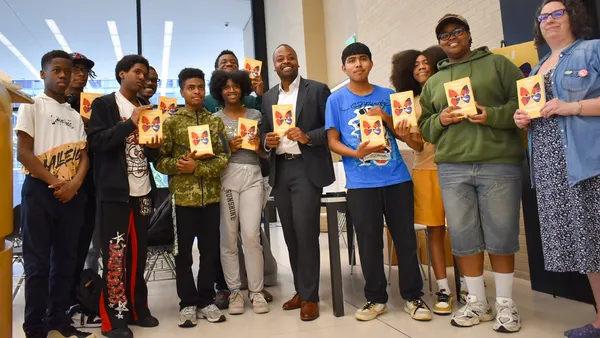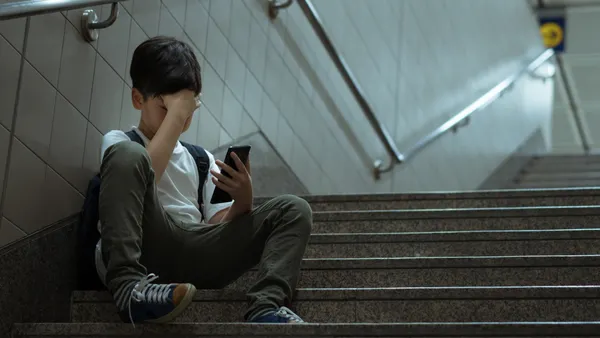Dive Brief:
-
Over 50% of principals are "extremely concerned" about students' social media use, only 14% feel "very prepared" to assist students in using these platforms responsibly, and 38% are unclear on where to find resources and best practices for helping students do so, according to data gathered by the Education Week Research Center in a national survey of school leaders.
-
The issue is particularly challenging at the middle school level, according to the data, and 79% of principals are also "moderately" or "extremely" wary of students being unable to determine the reliability of information found online.
-
Connecticut, Maine, Utah and Washington have all passed bills promoting lessons on digital citizenship, and broader concerns about extracurricular social media use range from cyberbullying and sexting to threats of violence, with the latter receiving particular attention in the wake of the February school shooting at Florida's Marjory Stoneman Douglas High School, the paper reports.
Dive Insight:
The rise of social media over the past decade or so has presented a litany of new challenges to school administrators. While students' actions beyond the school walls don't necessarily fall under their authority, they can impact what happens at school. In this way, social media can be a blessing and a curse, in that it's easier to monitor these activities in some respects if administrators can keep up with the fast rate of evolution on these platforms.
A big part of the answer, however, is taking a broader approach at lessons on online behavior via digital citizenship curriculum. Students must understand that what's posted online is, for all intents and purposes, there forever and not so easily buried. Additionally, the importance of empathy comes into play when dealing with a medium that tends to grant users a feeling of anonymity. Concerns that "fake news" and other content posted on social media may have influenced the outcome of the 2016 election also highlights the need for more lessons on thinking critically about information found online — especially now that it's also easier to fake video footage of public figures saying things they never actually said.
While administrators must continue doing their best to keep track of how students are using social media, finding ways to tackle these broader digital citizenship concerns as early as possible can help make that job easier in the long run.












